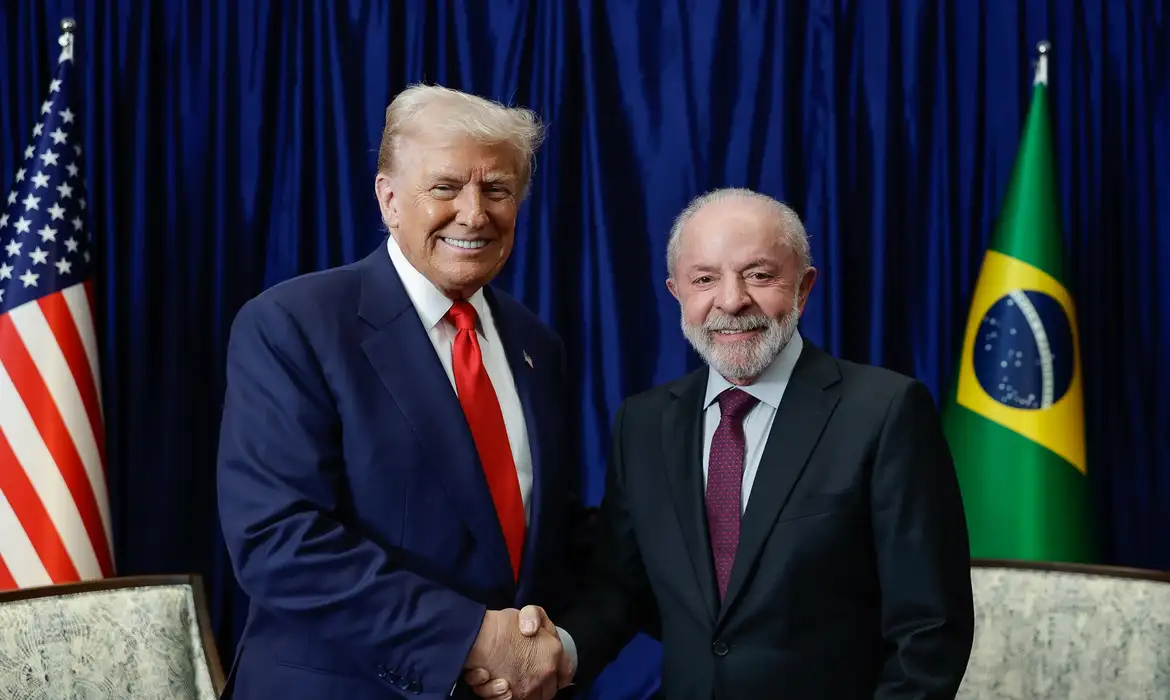
The United States government’s decision to exclude a series of agricultural products from the scope of reciprocal tariffs marks a relevant change in North American trade policy and alters the export environment for Brazilian agribusiness.
The measure is registered in the new Annex II of Executive Order 14257 and removes charges imposed at the beginning of the year on items that are pillars of Brazil’s foreign sales. The Brazilian government interprets the change as a direct result of negotiations conducted in recent months and as a movement that expands access to the American market.
The White House order does not identify specific countries, but the measure immediately impacts segments in which Brazil occupies a central position. The list includes green and soluble coffee, tropical fruits, cocoa, citrus juices, mangoes, melons, spices, beef and fertilizer categories.
The United States justified the decline by stating that these products are not produced domestically in sufficient volume to meet domestic demand, which explains part of the volatility observed in the American market.
Negotiations and technical arguments
The tariff reduction comes after negotiations in which Brazilian representatives argued that the tariffs created additional inefficiencies for North American production chains dependent on tropical climates.
The main argument presented by technicians from Brasília highlighted that the United States does not have the structural conditions to meet its own demand for these items, which would make maintaining tariffs an element of pressure on industry and retail costs. Technical teams from both countries discussed impacts on supply, inflation and logistics.
Brazilian negotiators say the decision increases “scale and predictability” at a time of global competition for suppliers of food and agricultural inputs. For Itamaraty and the Ministry of Agriculture, the removal of tariffs represents recognition of the role played by Brazil in supplying essential products to large consumer markets.
Economic effects and repercussions among exporters
Tariff changes tend to alter the pace of foreign sales in different sectors. Coffee producers, for example, now see more stable margins in a market that consumes more than 1.5 million tons per year. In the case of cocoa, Brazilian processing industries operate in an environment of strong international price fluctuations, a scenario that can be mitigated by reducing entry costs in the United States.
Orange juice exporters believe that the exemption reduces the risk of increased prices caused by logistical movements. Cattle ranchers observe the combination of two factors: reduction in tariffs and a drop in the American cattle herd, which increases the need for imports in certain segments of the food industry.
Brazilian companies linked to the fertilizer chain also see opportunities, as the United States depends on imports to supply a large part of the domestic market. The removal of tariffs opens up space for suppliers who operate with specific raw materials from tropical and subtropical regions.
American food companies, restaurant chains and packaged goods manufacturers could see a direct impact on costs. As few items on the list are produced on a large scale within the United States, there is no expectation of significant harm to local farmers. Supermarkets and processing companies identify the tariff drop as a possible factor in relieving consumer prices.
Recalibration of US trade policy
The decision is interpreted by analysts as a sign of adjustment in Washington’s tariff strategy. The movement indicates a clear distinction between sectors considered sensitive to national security — which continue to be subject to strict tariffs — and supply segments linked to tropical products, in which external dependence is structural. The removal of tariffs comes amid the signing of nine framework agreements and two final reciprocal trade agreements, initiatives that seek to reorganize production chains in alignment with the strategic priorities of the United States.
Brazil is not formally part of these arrangements, but the release of the agricultural list is seen as a gesture that highlights the United States’ need to have partners capable of guaranteeing a constant supply of food and inputs without viable domestic substitutes. Brazilian government technicians say that the measure opens up space to expand participation in future sectoral negotiations, especially on topics related to food security, critical chains and logistics.
Political impacts and next steps
The decision is treated by the Lula government as a diplomatic victory. Members of the economic team state that the tariff relief strengthens Brazilian producers in a period marked by high international demand. The announcement comes amid broader bilateral negotiations that deal with market access, tariffs applied to other sectors and economic cooperation projects.
The Ministry of Foreign Affairs and the Ministry of Agriculture are preparing a detailed assessment of the impacts by sector, including trade flow projections for 2025 and 2026. Technicians state that the volume exported may vary according to the behavior of the Brazilian harvest, exchange rate and North American demand.
Experts consulted by foreign trade entities highlight that the decision can reduce recent tariff conflicts and contribute to an environment of predictability. The predominant assessment is that the retreat marks an inflection point in commercial relations between Brasília and Washington, in which cross-interests may gain priority over short-term disputes.
Source: https://www.ocafezinho.com/2025/11/14/efeito-lula-trump-retira-tarifaco-contra-o-brasil/

